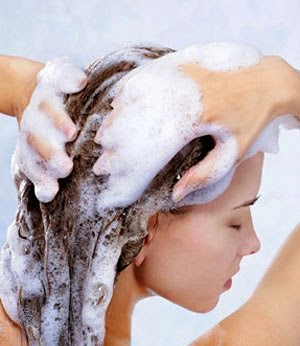Dandruff is a common affliction that many people suffer from, and there are many causes for the flaky and itchy skin that bothers many a scalp on a daily basis.
Causes of dandruff
- Hairspray, mousse, and gel may contribute to dandruff in some people.
- Too much use of hair styling products.
- Wash hair with hot water.
- A fall in temperatures reduces the production of skin oils that moisturize hair.
- Not enough hair brushing
- Hereditary
- Hormonal Imbalance
- Not enough hair brushing
- Indoor heating system
- Allergic reaction
- Dry skin
- Not enough shampooing
- Certain skin conditions like psoriasis and eczema
- Some illnesses like Parkinson’s disease
- Use of wrong hair care products
- Improper diet plan
- Too much of mental stress
Here are some tips to control dandruff:
1- Limit your use of hair styling products:
. They may also cause excessive drying of the skin, which can cause flaking - or trigger allergic reactions.
. If you notice dandruff soon after you begin to use a new product, chances are the product is to blame.
. The exception to this would be using a therapeutic styling gel or spray formulated with tea tree oil.
2. Eat a healthy, balanced diet:

Make sure to get plenty of zinc, Omega-3 fatty acids, E and B-vitamins, and avoid excessive yeast and sugar. cold-water fish, flax seeds, walnuts, eggs and leafy greens) in your diet.
3. Stress:
Too much stress in life can exacerbate dandruff. So, learn how to manage stressful situations by practicing yoga, meditating, or listening to soft music.
4. Infection:
As dandruff is a kind of fungal infection it can be contagious. This is why it is recommended not to share combs, brushes and towels with people who may suffer from dandruff.
5. Home remedies:
To keep dandruff under control you can try many simple and easy home remedies. For instance, products like of tea tree oil, lemon, green tea, yogurt etc have the potential for the treatment of dandruff.
6. Add moisture to your environment:
7. Brush your hair:
A humidifier will add the much-needed moisture to your environment without giving you a cold. A cool mist humidifier is easier to manage than a hot water type humidifier.
7. Brush your hair:
People who do not comb or brush their hair regularly have a slightly higher risk of having dandruff - this is because they are not aiding the shedding of skin that combing or brushing provides.
Regular hair wash is highly essential to keep your scalp free of dandruff.When taking a head bath avoid using too hot water.
Most anti-dandruff or anti-fungal shampoos contain at least one of the following active ingredients:
Dandruff flakes may seem worse in the winter, but in fact studies show that dandruff flakes are not a seasonal issue and that dandruff flakes can be just as much of a problem in the summer as it is in the winter.
Regular hair wash is highly essential to keep your scalp free of dandruff.When taking a head bath avoid using too hot water.
For washing your hair try dandruff shampoo.
Ideally, select a shampoo that has one of the below ingredients and shampoo your hair with it every day until your dandruff is under control. When that happens, use them less frequently.
Most anti-dandruff or anti-fungal shampoos contain at least one of the following active ingredients:
- Zinc Pyrithione - an ingredient which slows down the production of yeast.
- Selenium sulphide - an anti-infective agent, relieves itching and flaking of the scalp and removes the dry, scaly particles.
- Coal tar - this has a natural anti-fungal agent. If your hair is dyed or treated remember that long-term coal tar usage can stain the hair.
- Ketoconazole - a very effective anti-fungal. Most people who use this are pleased with the results. Experts say shampoos with this ingredient can be used with young and elderly people.
- Salicylic acids - these help your scalp get rid of skin cells. They do not slowdown the reproduction of skin cells.
- Tea-tree oil - This oil comes from the Australian Tea Tree . A growing number of shampoos now include tea-tree oil as one of its ingredients. It has been used for centuries as an anti-fungal, antibiotic, and an antiseptic. However, some people are allergic to it.
Dandruff flakes may seem worse in the winter, but in fact studies show that dandruff flakes are not a seasonal issue and that dandruff flakes can be just as much of a problem in the summer as it is in the winter.
We tend to wear darker clothes in the winter, however, against which dandruff flakes are very visible. In addition, people may shampoo their hair less frequently in the winter than in the summer, which allows scalp oils to accumulate and may exacerbate the condition.
Stay Healthy,





No comments:
Post a Comment